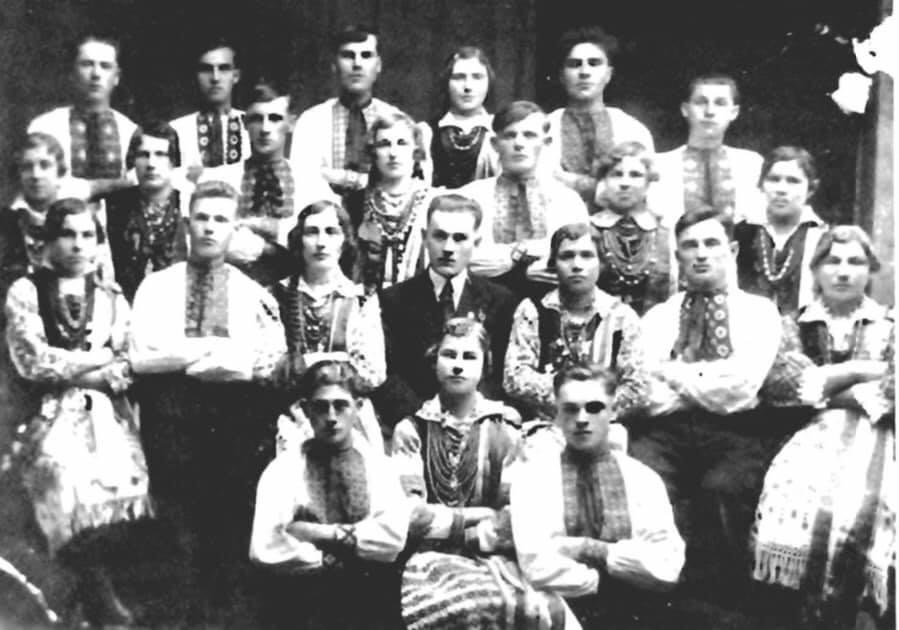In December 1868, the cultural and educational organization Prosvita was founded in Lviv, which lasted from the second half of the last century to the end of the 1930s.
The State Archives of the Lviv Region keeps documents on the registration of Prosvita branches and their activities. In the scientific library of the archive you can get acquainted with illustrated calendars published by the society, reports of the organization.
The Ukrainian people have always had a great desire for education. This love for science and education makes its way through the entire history of Ukraine – from its ancient to modern times. In science and education, the Ukrainian people sought help and pleasure, clung to it and among its greatest development and in times of hardship. Anyone who knows the history of the Ukrainian people knows how many difficulties have been overcome in the name of science and education.
When Austria occupied Galicia in 1772, the Ukrainian people were in terrible cultural neglect. The former Ukrainian gentry converted to Roman Catholicism, the bourgeoisie – due to circumstances, also turned away from the common people. Only priests remained with the Ukrainian people (the government allowed them to live) and an illiterate peasant mass.
The difficult political and social situation of the people contributed to uniting them around cultural and educational societies, including the Enlightenment Society.
Enlightenment’s activities were based on a charter that was not the same from the day it was founded. It changed as society needed and developed. The Enlightenment organization was founded by the People’s Volunteers to spread education among the people. The society published works by Ukrainian writers, school textbooks, popular brochures, newspapers, and reviews. Libraries and Ukrainian museums were founded at the society, it was also engaged in concert activities.
Thus, in 1873, on the initiative of members of the Enlightenment Society, the Enlightenment Literary and Scientific Society was founded. Shevchenko ». In 1881 the Ukrainian Pedagogical Society was founded.
In 1891, the Enlightenment Society expanded its activities from a purely educational to an educational and economic one and became the strongest Ukrainian society in the region. In the cities and villages there are branches of “Enlightenment”, growing dozens, and later hundreds of reading rooms, which bring together thousands of members of society.
In 1898, “Enlightenment” initiated a major national event on the occasion of the 50th anniversary of the abolition of serfdom in Galicia. To make the people aware of the importance of the demolition of serfdom, separate books were published: “On the fiftieth anniversary of the demolition of serfdom and the revival of Galician Russia” and “Serfdom and its abolition in 1848”, written by I. Franko. These books were sent to all Enlightenment reading rooms.
In 1913, there were 2,649 reading rooms in Lviv Voivodeship, which carried out meaningful educational work. In 1913, together with the Scientific Society. Shevchenko’s “Enlightenment” initiated the 40th anniversary of the writing of Ivan Franko, whom she named an honorary member.
In 1914, the Enlightenment Society called not only on its land, but also on all Ukrainians around the world to celebrate the 100th anniversary of Taras Shevchenko’s birth. It was decided that the anniversary would last the whole of 1914.
The military events of 1914-1920 had a negative effect on the Enlightenment. Many of its reading rooms and centers were destroyed, the society was reopened in the post-war period, the number of reading rooms increased by 65 to 2,934. .
For example, in Sokal County in 1925 there were 48 reading rooms, 15 amateur clubs, 9 choirs, 20 reading houses and three under construction. 52 exhibitions, 34 reports and 3 concerts were organized. There were 2765 books in the libraries of the reading rooms. Members of the reading rooms – 1984 people. In 1926 there were 54 reading rooms, 38 reading libraries were illustrated. The reading room in Nysmichy had 400 books, in Rozhdzhalov – 361, in Konotop – 316 books. In 1927, there were already 40 libraries in the Sokal region, numbering 5,568 books, 36 amateur groups, 327 performances, 28 concerts, and 41 lectures.
Statistics for 1935 show that at the end of 1935, the Prosvita reading society in the Lviv Voivodeship had 275,324 active members, including 205,981 men and 65,714 women aged 14 to 35.
Honorary members of the society were: writer Ivan Nechuy-Levytsky, composer Mykola Lysenko, writer, scientist and people’s figure Ivan Franko, poet Yuri Fedkovych, poet and playwright Mykhailo Starytsky …
Over the years of its existence, Prosvita has united Ukrainian citizenship in its own and foreign lands into one strong family.
O. Belik
January 4, 1990

